A young artist keeps an old art form alive in Charleston.
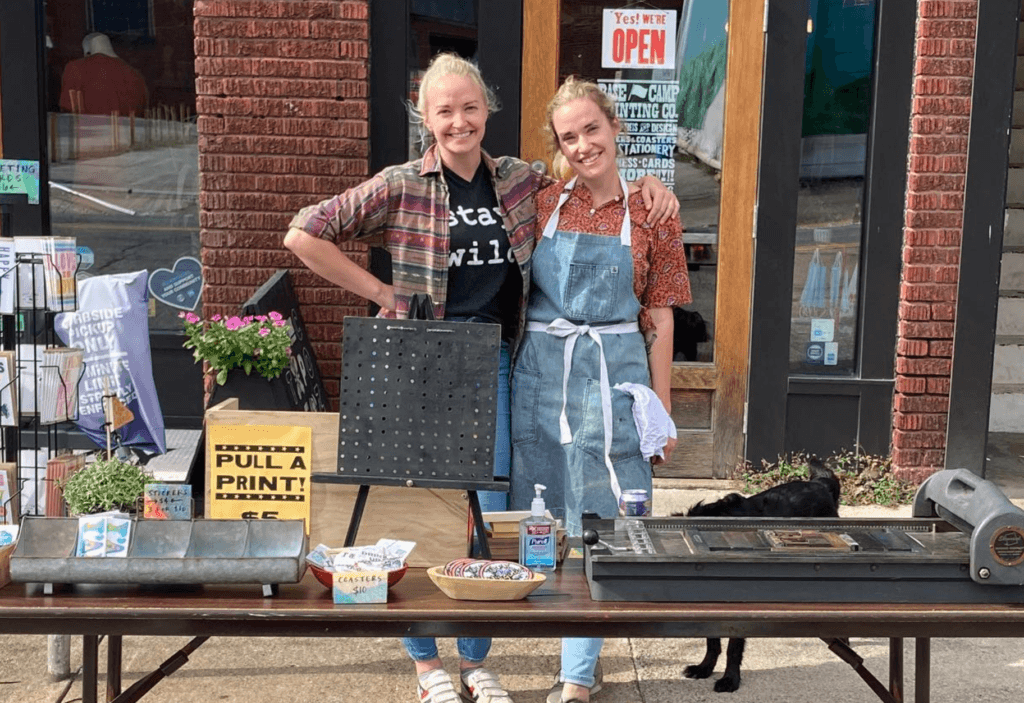
Originally published on West Virginia Living Magazine’s Website in December, 2017. Updated in June, 2022 by West Virginia Living Staff
To subscribe, visit www.wvliving.com
Let’s play a quick game of word association. Picture, in your mind, a “printer.”
More than likely you imagined something about the size of a microwave oven, probably in beige or matte black, that feeds on bright white copy paper and expensive plastic cartridges filled with ink. That’s a perfectly acceptable answer here in the 21st century. But not too long ago, your mental image would have been vastly different. Not too long ago a “printer” was not a machine, but a person—an expert in a process involving hundreds of pounds of heavy machinery, serious technical skill, and an artist’s touch.
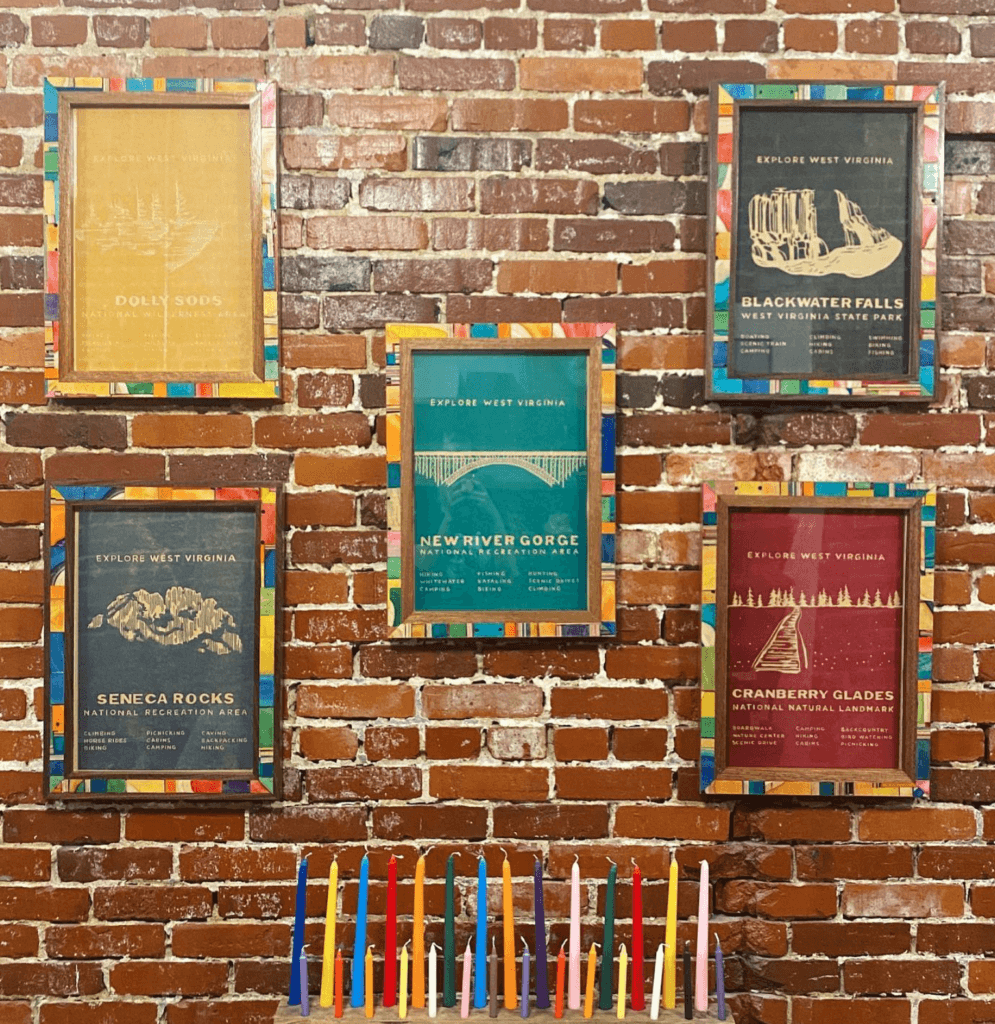
Although that process has largely gone the way of the buggy whip, a few dedicated artists are keeping it alive. That includes Emily Sokolosky, founder of the newly opened Base Camp Printing Company on Charleston’s West Side.
The shop looks straight from the Industrial Age, except for the Mac computer Sokolosky uses to run her online shop and the iPad that serves as a cash register. Drawers contain rows and rows of antique wood blocks, each featuring a different character in a host of typefaces. When she’s designing a new print, Sokolosky lays out and locks these blocks into wooden frames known as chases, with the negative space filled in by blank pieces of wood called furniture. “It’s like a puzzle,” she says.

With the design all laid out, Sokolsky next loads her chase into her printing press, a coal-black Chandler & Price model from the 1930s that serves as the centerpiece of her shop. She pries open a can of thick, goopy ink on a nearby table, scoops out a thin line with a palette knife, and smears it across the silver metal disk at the top of the press. She switches on the electric motor, which is connected to a thick leather belt that drives the press, and spins a big cast iron flywheel to set the machine in motion. A set of rollers begins to move back and forth across the rotating ink wheel and down onto the chase, spreading a little more ink onto the blocks with each pass.
Because she is working with antique equipment, Sokolosky often must do a little tweaking before she can get a good print. Sometimes a piece of Scotch tape on the backside of a block is enough to raise it to the proper height. Other times, she builds up pressure by stuffing torn shards of scrap paper behind the paper she plans to print.
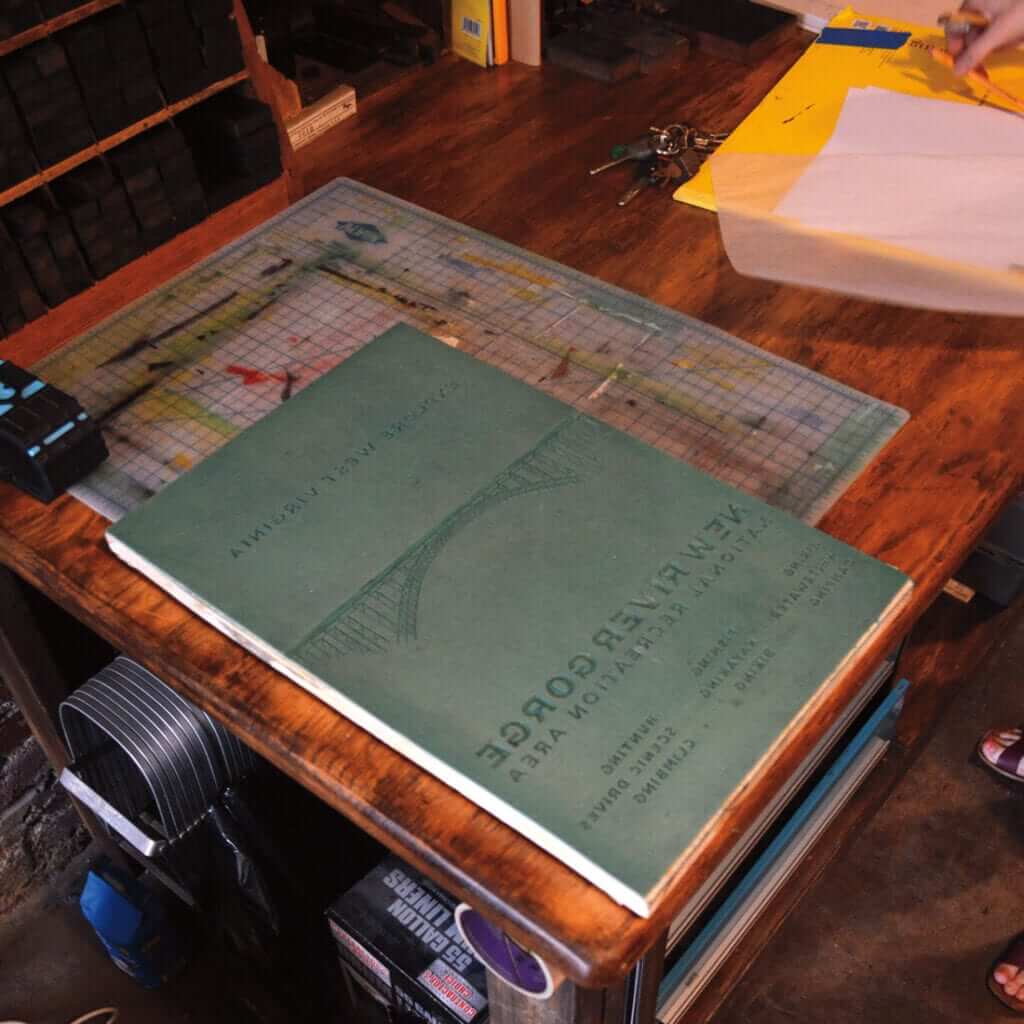
“It’s a good balance between problem-solving and physical labor,” Sokolosky says. “You’re hands-on, the entire process.” Her favorite part of the process, however, is the end. “I really like the moment when you put in the paper. You’re like, ‘All right, what’s it going to be?’”
Sokolosky first became interested in the antique process of letterpress printing as a junior at West Virginia University after she attended a professor’s presentation on the university’s collection of wood blocks used to print feed sacks. “I had no idea WVU even had a press and blocks,” she says. Soon after, Sokolosky and the professor crafted an independent study program, setting up a print shop in an empty classroom.
She built a nice portfolio of letterpress work and, when she graduated in December 2014, submitted that work to Hatch Show Print in Nashville, Tennessee, the largest and oldest letterpress shop in the country. Hatch offered Sokolosky an internship and she spent three months in Music City learning to organize type, run the presses, and design posters in Hatch’s house style.

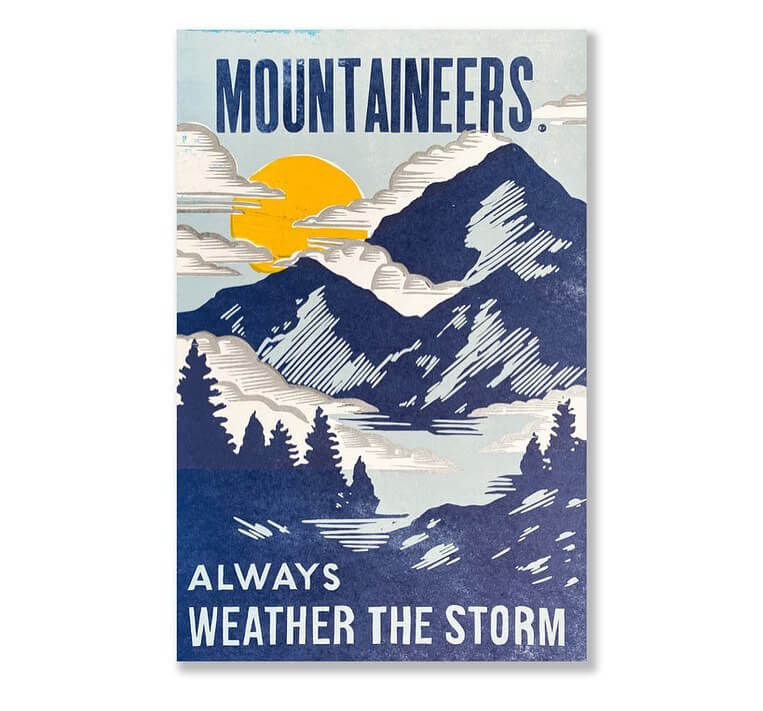
When she returned to West Virginia, she got a job with Kin Ship Goods, a screen printing business that moved its operations to Charleston and opened its first brick-and-mortar store in 2014. She spent a year working in the store and helping print T-shirts, while continuing to develop her letterpress skills. She sold some prints and cards through Kin Ship and put together a pop-up shop for Charleston’s monthly Art Walk event.
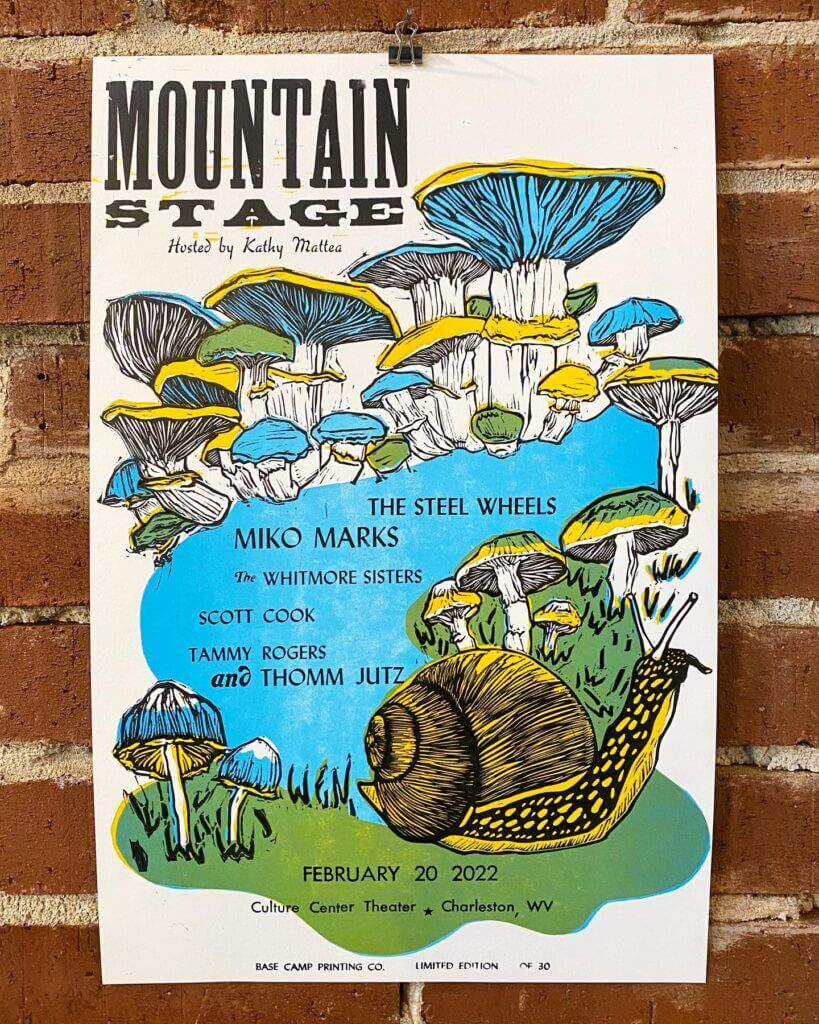
When Kin Ship relocated to a larger, newly refurbished building on Charleston’s West Side, co-owners Dan Davis and Hillary Harrison encouraged Sokolosky to open her own space in an adjoining space. Base Camp Printing Company opened Memorial Day weekend 2016 and has since attracted a steady stream of customers happy to snatch up Sokolosky’s custom prints and greeting cards and hire her to make business cards, wedding invitations, and personalized stationery.
Her shop has also attracted the attention of retired printers. Sometimes they want to talk shop or offer advice. One dropped by recently to use Base Camp’s equipment to print a birthday card for a friend. The same old-timer often shows up with drawers of his old type to help build up Base Camp’s collection. Sokolosky, of course, is more than happy to accept those donations. It’s just one more way she’s keeping an old profession pressing on.
Base Camp Printing Company is open Wednesday through Saturday, 11 a.m. to 7 p.m. 613 Tennessee Avenue, Charleston; 304.546.9379; basecampprinting.com


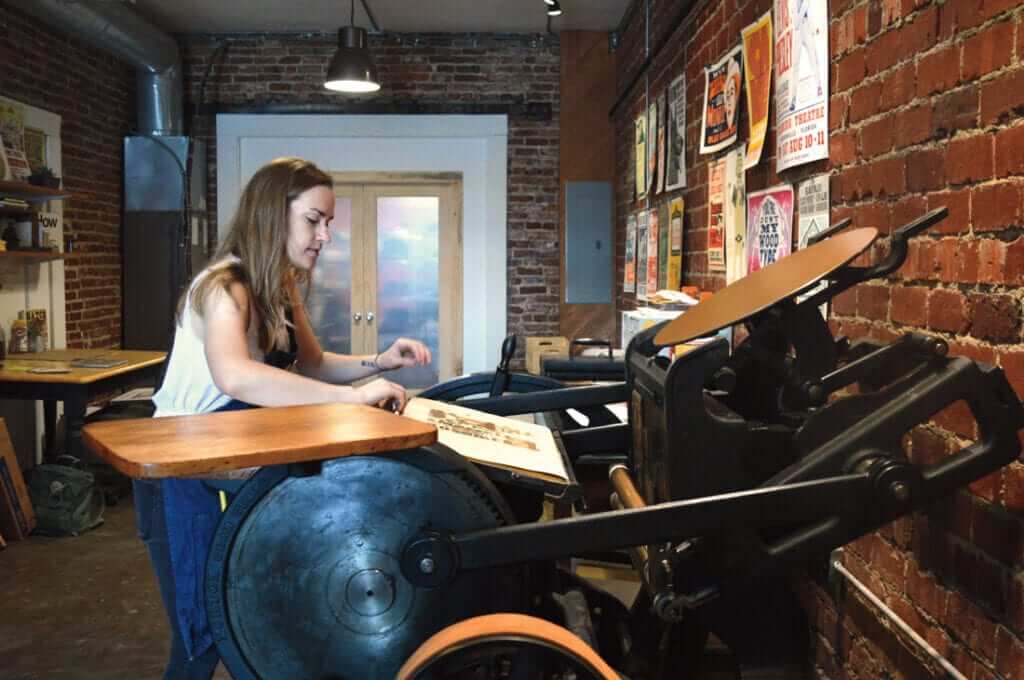









Leave a Reply